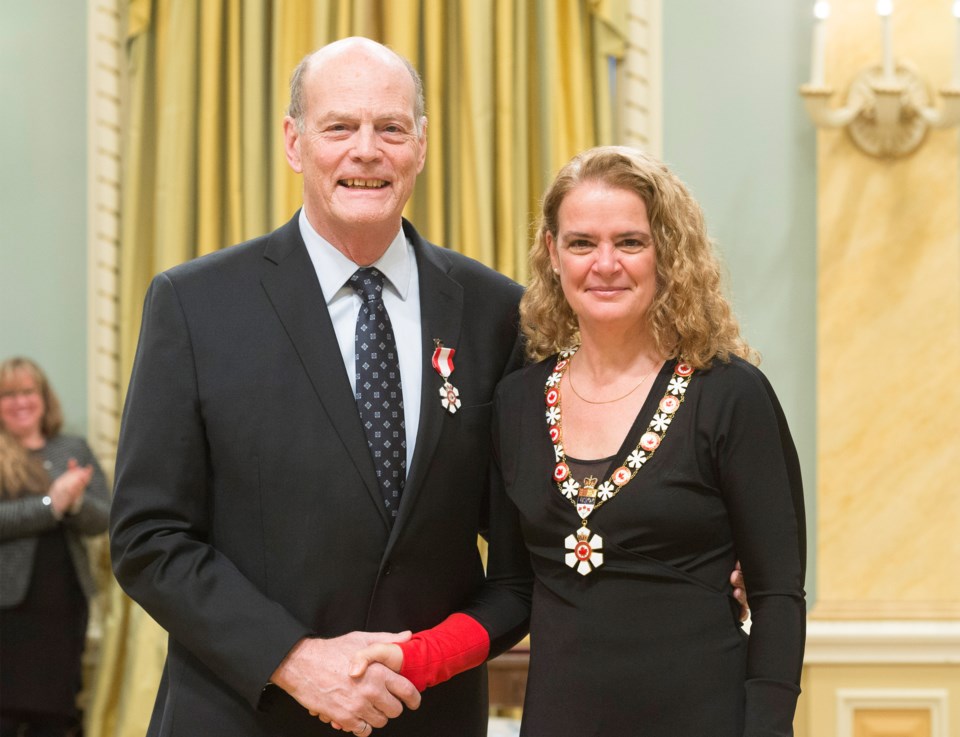Troy Shantz
At the age of 15, William MacDonald “Mac” Evans stood in the front yard of his Norman Street home and gazed up into the heavens.
He and his dad were hoping for a glimpse of Sputnik, and they weren’t disappointed.
As they watched, the world’s first satellite launched by the Soviet Union in 1956 streaked across the dark night sky.
Evans’ interest in space began to expand, like the universe itself.
“I was a HAM operator… I tuned in and listened to the ‘beeping’ from Sputnik,” he recalled from his winter home in Victoria, B.C. “So that’s where it started.”
Evans went on to an illustrious career at the Canadian Space Agency. And for his pioneering work, the Sarnia Central Collegiate grad has been made a Member of the Order of Canada, the nation’s second highest civilian honour.
Evans earned an engineering degree at Queen's University, returning home for two summers to work at Polysar.
He joined Canada’s Defence Research Telecommunications Establishment in 1967. While there, he and his team tested Canada’s first satellite communications in Resolute Bay, NWT.
Then, in the mid-1980s, Evans worked with a group that managed to convince the federal government Canada should have its own space program.
“I offered the report to the Prime Minister … that recommended the creation of a Canadian Space Agency,” Evan said.
The Agency was founded in 1989, and Evans served as its president from 1994 to 2001.
He worked on the Canadarm2, the 17-metre robotic arm that assembled the International Space Station while in orbit around the earth. Even today, it’s still used occasionally to move supplies, equipment and astronauts.
Evans worked on several groundbreaking discoveries.
He oversaw creation of the RADARSAT 2 observation satellite, the first satellite capable of capturing images and data regardless of weather or light interference.
That program was responsible for producing about 15% of planet earth’s observation data, he said.
And in 1992, the Sarnia native was part of a board that hired a pilot named Chris Hadfield to join Canada’s astronaut team.
Our nation has also become a world leader in solar terrestrial relations, added Evans, who spends his summers in Ottawa.
“That’s understanding what happens when all these particles and things come from the sun and they interact with the magnetic field.”
That work led directly to the development of an instrument that was deployed on a mission to Mars.
“This is classic Canadian,” he said. “It was our instrument that found out that it snows on Mars.”
Mac Evans was one of 47 Canadians invested into the Order of Canada by Julie Payette, Governor General of Canada, during a Jan. 24 investiture ceremony in Ottawa.
